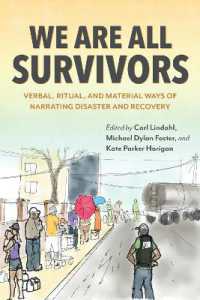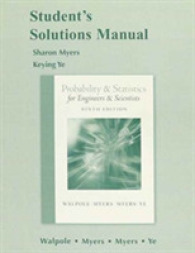Full Description
The knowledge economy, a seeming wonder for the world, has caused unintended harms that threaten peace and prosperity and undo international cooperation and the international rule of law. The world faces threats of war, pandemics, growing domestic political discord, climate change, disruption of international trade and investment, immigration, and the pollution of cyberspace, just as international law increasingly falls short as a tool for managing these challenges. Prosperity dependent on meritocracy, open borders, international economic freedom, and a wide-open Internet has met its limits, with international law one of the first casualties. Any effective response to these threats must reflect the pathway by which these perils arrive. Part of the answer to these challenges, Paul B. Stephan argues, must include a re-conception of international law as arising out of pragmatic and limited experiments by states, rather than as grand projects to remake and redeem the world.
Contents
1. The crisis arrives; Part I. The Rise and Fall of Liberal Internationalism and the New World Order: 2. The end of communism and the embrace of the Washington Consensus (1989-2000, Part I); 3. New international organizations and their ambitions (1989-2000, Part II); 4. Cracks in the foundation and system shocks: terror, the great recession, and the Arab Spring (2000-15); 5. Crises come in waves: national populism, the poisoning of cyberspace, a new cold war, and the pandemic (2015-21); Part II. The Knowledge Economy: World Conquest and Creative Destruction: 6. Knowledge, technological innovation, and wealth; 7. Law and the knowledge economy: what the winners want; 8. Losing and location in the knowledge economy: the view from the Hinterlands and the Chinese alternative: Part III. Battlegrounds: 9. International security, cyber disruption, and human rights; 10. Immigration; 11. Trade and investment; 12. The treason of the clerks: judicial revolts against international law; Part IV. International Law Futures: 13. Dancing along the precipice; 14. What may endure; 15. Conclusion.







